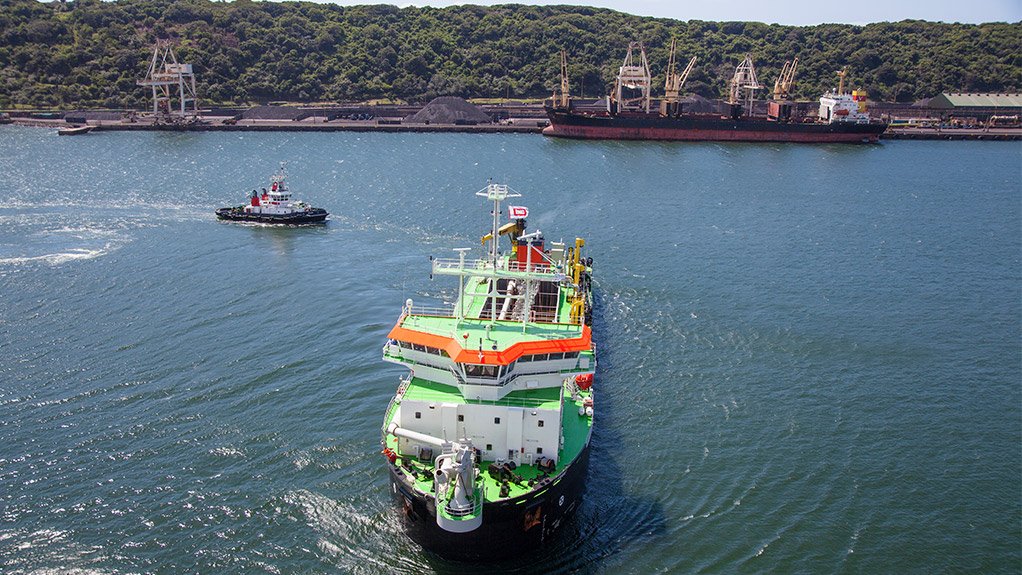State-owned company Transnet National Ports Authority (TNPA) will launch its dredging school – the first of its kind in Africa – this year, says TNPA infrastructure and port planning GM Hamilton Nxumalo.
“The TNPA Dredging School is a result of the Supplier Development Programme (SDP) related to our investment in the acquisition of the Ilembe – the new 5 500 m3 trailing suction hopper dredger, which is the largest of its kind on the continent.”
The SDP is an initiative of the Depart- ment of Public Enterprises, supported by State-owned freight utility Transnet. The programme aims to increase the competitiveness, capability and capacity of the South African supply base where there are comparative advantages and potential for local and regional supply of materials and components, as well as skills development and training.
Nxumalo says the school will be of great importance to the African dredging market in terms of training not only dredging crews, but also project managers, harbour masters and port engineers.
“The vision for the future is to use this formal educational route to train South Africa’s dredging personnel from TNPA, and other companies and other African countries,” he enthuses.
The return-on-investment of a training programme is significant, as proper training and competency in operating specialised dredging equipment ensures safe and effective operations, Nxumalo adds.
The TNPA’s training interventions have assisted in developing many highly skilled employees over the years, “among them Londiwe Ngcobo – the first black woman dredge master to join TNPA’s dredging division and serving at the helm of TNPA’s dredger Islandlwana”, he says.
Nxumalo mentions that Africa is experiencing a significant increase in trade, with growing volumes of cargo at all African ports. Port authorities and operators are required to increase capacity and employ measures to deliver world-class service, facilities and efficiencies.
Vessel sizes are increasing, and this has an impact on port infrastructure and dredging requirements. In the past few years, there has been an influx of container vessels larger than 10 000 twenty-foot equivalent units and accommodating these larger vessels has resulted in the demand for berth dredging increasing threefold, he explains.
“Several regional ports are ramping up plans to expand port capacity, including major dredging projects, so the TNPA would like to be able to provide human capacity for that in the near future.”
Nxumalo adds that Transnet’s Market Demand Strategy – launched in 2012 to expand and modernise the country’s ports, rail and pipeline infrastructure, with a view to achieve a significant increase in freight volumes – has resulted in TNPA upgrading infrastructure and replacing its fleet with new dredgers, as well as larger and more powerful tugs to cater for larger ships calling at its ports.
The TNPA Dredging Services division assists with the removal of about 4.5-million cubic metres of excess material from the seabed every year across South Africa’s ports.
“Our dredging fleet plays a vital role in facilitating economic growth within the country by ensuring our ports’ entrance channels, basins and berths are well maintained. Critical to the success of dredging is the need for world-class dredging vessels,” Nxumalo concludes.
Edited by: Zandile Mavuso
Creamer Media Senior Deputy Editor: Features
EMAIL THIS ARTICLE SAVE THIS ARTICLE
ARTICLE ENQUIRY
To subscribe email subscriptions@creamermedia.co.za or click here
To advertise email advertising@creamermedia.co.za or click here













